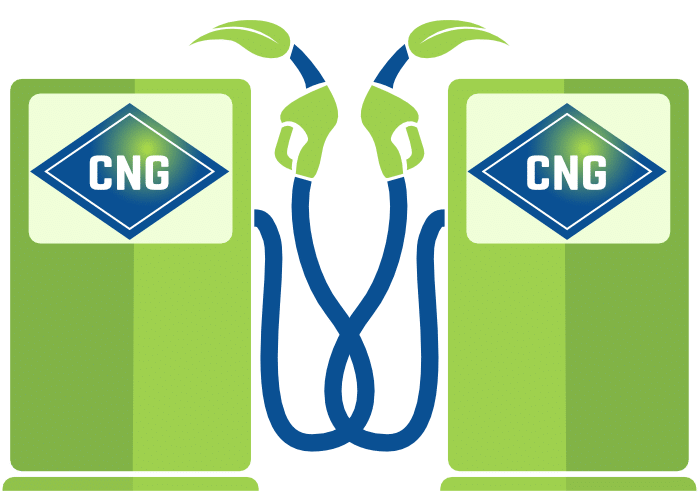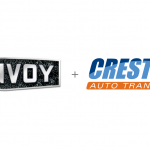Why CNG is the Future of Transportation
Compressed Natural Gas (CNG) Stations
There is no better time to look for alternative fuel sources, for many reasons. Chief among those is concern for both the environment and the U.S. economy. Compressed Natural Gas (CNG) is catching on in North America as the demand for converting to domestic natural gas to power our vehicles has come. Over the last decade gasoline prices have risen continuously because of the hefty price tag to fund our dependence on foreign oil. Fleet vehicles have a greater impact on oil consumption because they travel many more miles than privately owned vehicles. For a competitive advantage, many organizations are starting there. Not to mention that fueling fleet vehicles is expensive. Think about it: police vehicles, mail delivery trucks, local cartage companies and airport shuttles, city buses; the list goes on. Converting to compressed natural gas vehicles appears to be the smartest way to bring down operating costs, which fatten the bottom line for business owners and saves consumers in the long run.
Natural gas is readily available with the pipeline infrastructure already in place. Most urban areas have seen a rise in CNG refueling stations.

Benefits to Converting to CNG
There are so many reasons CNG is the best alternative fuel source. We’ll cover just a few here, starting with the fact that compressed natural gas is the cleanest burning transportation fuel. CNG burns cleaner than petroleum-based products because of its lower carbon content. It also produces fewer emissions than other fuels, fewer greenhouse gas emissions and tailpipe emissions. CNG fuel systems are completely sealed and these vehicles produce no evaporative emissions.
CNG is an affordable fuel source, costing about 50% less than gasoline. It won’t require the transportation costs that our foreign oil dependency does, because it’s available on American soil. This means more American jobs, energy independence, and an increase in national security.
CNG is also easier on the inner working parts of vehicles. Spark plugs, crankcases, pipes and mufflers will experience extended life, as will the necessity of frequent oil changes and tune ups. It’s a safe fuel as leaks won’t pose a threat to the environment being that it is non-toxic.
Forward Thinking Companies and Upfitters
UPS continues its forward thinking approach to alternative fuels by replacing region-specific fleet vehicles with CNG, LNG and Propane fueled vehicles. We consider them a champion for alternative fuels. Crestline is partnering with upfitters and companies converting to CNG fleet vehicles by providing auto transport services to and from the upfitter themselves. We value our relationship with Westport. As of June 1, Westport and Fuel Systems Solutions officially merged and are providers of alternative fuel systems, serving global OEMs. Another well-recognized CNG clean fuel upfitter is Landi Rezno USA. When it comes to Propane fuels, we can count on Roush Cleantech. For electric, check out Zenith Motors. We are committed to doing whatever we can to support and expand the demand of compressed natural gas vehicles.




